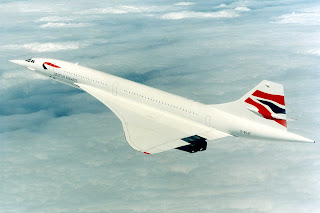The hotels are booked. The bags are packed. Now the only thing standing between you and that exotic dream holiday you’ve been fantasising about for months (maybe even years) is a 10+ hour journey in an airborne pressurised tube.
If you’re planning to travel internationally, there’s a very good chance that you’ll need to spend some quality time on a plane. Though flying is the quickest and most efficient way to travel long distances, with its limited personal space and turbulent tendencies, it’s seldom thought of as the most enjoyable.
Still, a long flight doesn’t need to be painful. In fact, with the right attitude and onboard survival kit, it can be just what you need to get some rest and transition into the vacation spirit before landing at your final destination. Here are a few tips on how to keep your time in the air as pleasant as possible:
When you find your seat, keep everything you’ll need for the duration of the flight together in a bag that can fit in the seat back pocket in front of you or on the ground if you can spare the legroom. Put everything else in the overhead bin. Your neighbours will appreciate not having to accommodate your every move, and pulling things in and out of your luggage mid-flight while standing in the high-traffic centre aisle is an easy way to lose or forget belongings. If you weren’t able to set these items aside when you packed at home, use the time you have at the gate before you board. I like to put everything in a small zip tote, so I won’t worry about anything falling out. When packing this bag, think hygiene, comfort, entertainment and warmth, but don’t get too greedy. Necessities only.
The confined nature of planes makes them conducive to spreading germs, so for some peace of mind, bring disposable alcohol wipes to quickly disinfect the area around your seat. Then, settle in for the long haul by cleaning up so you can rest easy. Use a facial cleansing wipe to remove dirt and make up and a baby wipe on your neck and body to get rid of any airport/travel grime (but keep it discreet and reasonable). Aeroplanes have notoriously dry air and prolonged exposure during a long flight can seriously zap the moisture from your skin. Hydrate your face and hands with a lotion, oil, or moisturising mask that’s either unscented or light enough to not upset any sensitive noses around you. If you have really dry skin, you might want to invest in a hydrating facial mist and spritz yourself a couple of times during the flight.
Don’t assume your flight will come stocked with in-flight entertainment options. Systems could malfunction, and you might find yourself staring at a blank screen for 10 hours. Load up your tablet or smartphonewith shows, films or books you’ve been meaning to watch or read. A long flight is a perfect excuse to catch up and binge, but don’t forget your headphones. Make sure your devices are fully charged before getting on the plane and bring a spare battery or portable charging station in case the plane doesn’t have any outlets. I like to keep a travel guide for my destination on my phone. Not only do I learn fun facts just in time for my arrival, I’m reminded of the great holiday that awaits and that any discomfort onboard is just temporary.
Remember life before the internet and portable electronics? No? Well, you can still pretend. Shift gears from the hustle and bustle of your everyday grind to holiday mode by going analogue. Bring a notebookand pen, and use the quiet time to reflect or at least refresh your memory of what your handwriting looks like. If you’re lucky enough to have a travel companion, grab a deck of cards and pass the time with some healthy competition.
To survive a long flight, you’ll need to be as careful about what you eat before the flight as what you eat while on board. Stay away from anything too heavy, greasy, spicy or salty and avoid eating too much of healthy foods like beans or cauliflower that can encourage bloating as well. Also, consider avoiding alcohol and carbonation if you want to get some quality rest. Opt for caffeine-free herbal tea and bring a water bottle that you can ask the flight crew to refill as necessary. Some also advocate for fasting while travelling long distances as they say it’s easier to reset your body’s internal clock if you’re hungry upon arrival at your destination.
For Travel Insurance Check out our site HERE
For Travel Insurance Check out our site HERE






